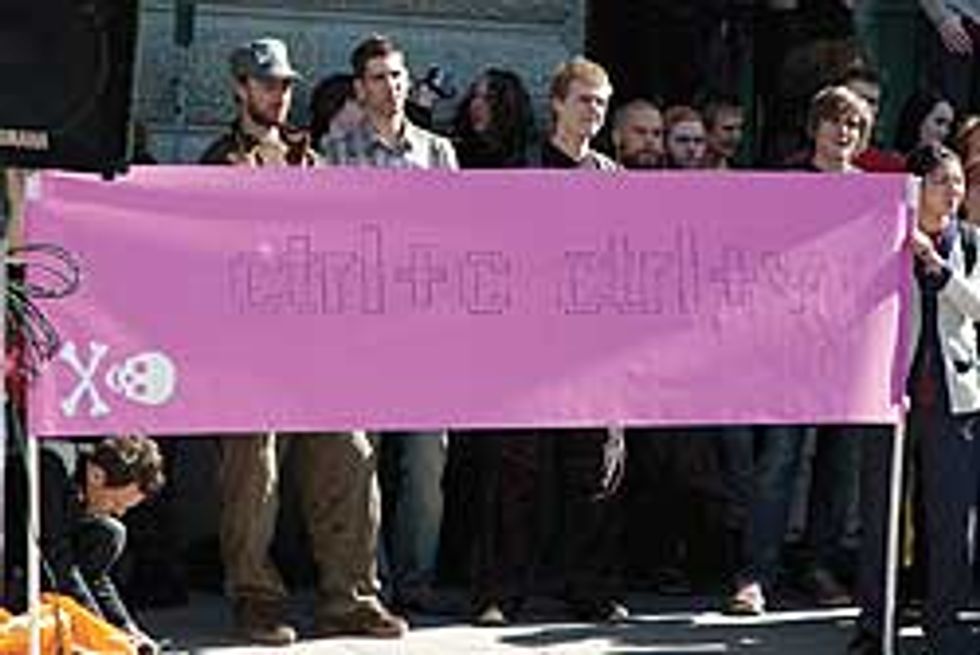A report in The New York Times back in September noted that one of the ”most common forms of identity theft involves illegal immigrants using fraudulent Social Security numbers.” In other words, some people have been stealing other people’s identities not to drain their bank accounts but merely to abscond with their places in legitimate society. Well, that’s a relief!
Identity theft is hardly the only assault on our electronic selves. There’s spam, computer viruses, and cyberstalkers. And, in the United States at least, it seems everyone from the National Security Agency to Hewlett-Packard is trying to tap our phones. Sometimes you just want to make sure you have a little privacy. That’s where Relakks comes in. Relakks is a service by Labs2, an Internet service provider in Lund, Sweden, that offers a way to spend time on the Internet anonymously.
Specifically, Relakks is a virtual private network, or VPN, the same kind of system that lets business travelers sit in an airport lounge or coffee shop and ”tunnel” through their companies’ firewalls, using their laptops as if they were back in the office. When you log in to Relakks, a similar tunnel is established between your computer and the servers at Labs2. If you were, say, an AT&T broadband customer sending e-mail to a friend, the e-mail’s originating Internet Protocol address would be a computer in the Labs2 network in Sweden. The e-mail’s header data would not show any involvement by an AT&T server in the United States. And, like most VPNs, Relakks encrypts all the data packets that travel through it.
The service costs a little over US $6 per month, and you can download the software for Windows and OS X from https://www.relakks.com.
This is not the first time Scandinavia has been at the forefront of Internet privacy. Back in 1993, before the Web took off, a Finnish network engineer, Johan Helsingius, created a remailing service that lets users create accounts and then send e-mail anonymously or post notes to Usenet, a popular message-board system. Messages were first sent to the service, which was known as ”anon.penet.fi,” for the name of the server it used. The server removed a message’s header information and sent it from the user’s account address, which had the form ”username@anon.penet.fi.”
The anonymity was not perfect. Its Achilles’ heel was a table linking account names to real e-mail addresses. Sure enough, in February 1995, Helsingius was sued by the Church of Scientology. A Finnish court ordered him to reveal the identity of someone who used his anon.penet.fi account to criticize Scientology. Helsingius eventually shut down the service in August 1996--exactly 10 years before Relakks came along. At the time, he had about 700 000 registered users.
Copy, Paste
It's a political slogan only geeks could rally behind.
Today, a handful of remailers still exist, such as one run by San Diego�based Anonymizer, which also runs a Web anonymity service. All now use complicated networking schemes and cryptography to avoid the flaw that upended anon.penet.fi.
Generally speaking, all anonymity services today, including Relakks, work by obfuscating any connection between your real Internet address and the messages you create. Relakks uses its VPN to drown your message in a sea of user activity. Oddly enough, the money Relakks charges for privacy goes to a political party called the Swedish Pirate Party, which was founded in January to reform intellectual property law. Although none of its candidates were elected in the September general election, support for the party exceeded that for most European fringe parties, prompting several other political parties in Sweden to alter their positions on copyright law. The Swedish Pirate Party looks set to campaign in the 2009 European Parliament elections and has inspired similar political parties elsewhere around Europe.
Speaking of pirates, to be sure, some Relakks users will download music in ways that cannot be traced by the copyright police. Hollywood can probably relax, however--VPNs always slow down an Internet connection, and Relakks is reportedly so sluggish that only the truly desperate will attempt to download movies with it. While it’s possible that other malefactors, such as hackers, spammers, and terrorists, will use Relakks, such people are already experts at operating with cyberanonymity. They know how to take advantage of throwaway free Web mail accounts, open e-mail servers, and spybots that hijack unsuspecting home computers.
In any event, there are plenty of legitimate uses of Relakks as well. With it, you can hide your credit card when you make an electronic purchase or add a further layer of security to any VoIP-based phone calls. That’s especially important if you’re surfing on an open Wi-Fi network or logged in at an Internet café, where traffic can be easily monitored by anyone with a Wi-Fi card, let alone the NSA.
